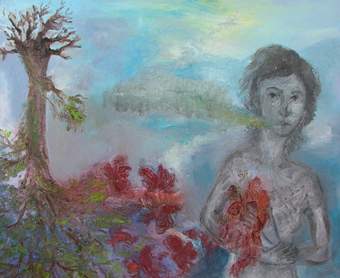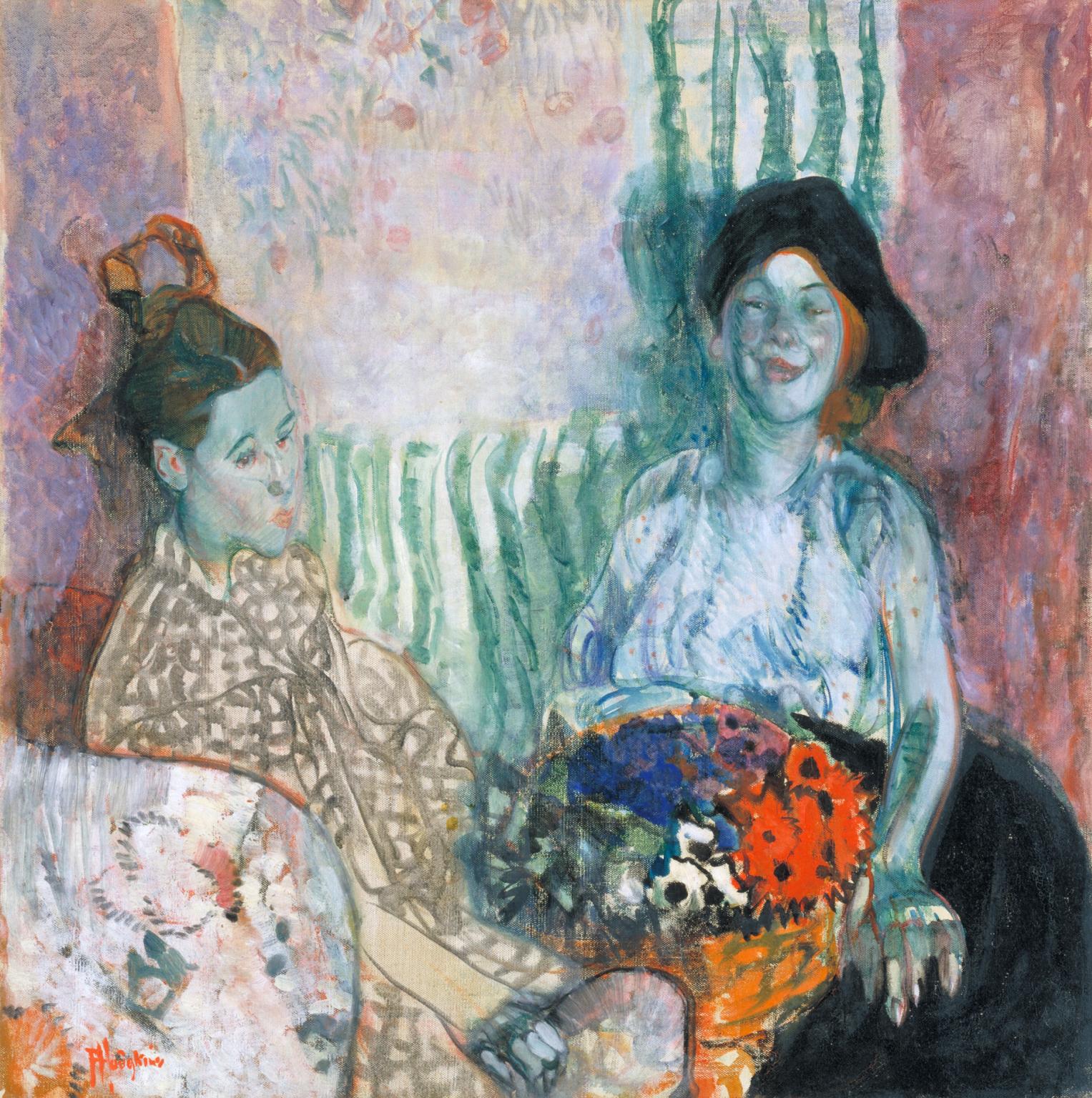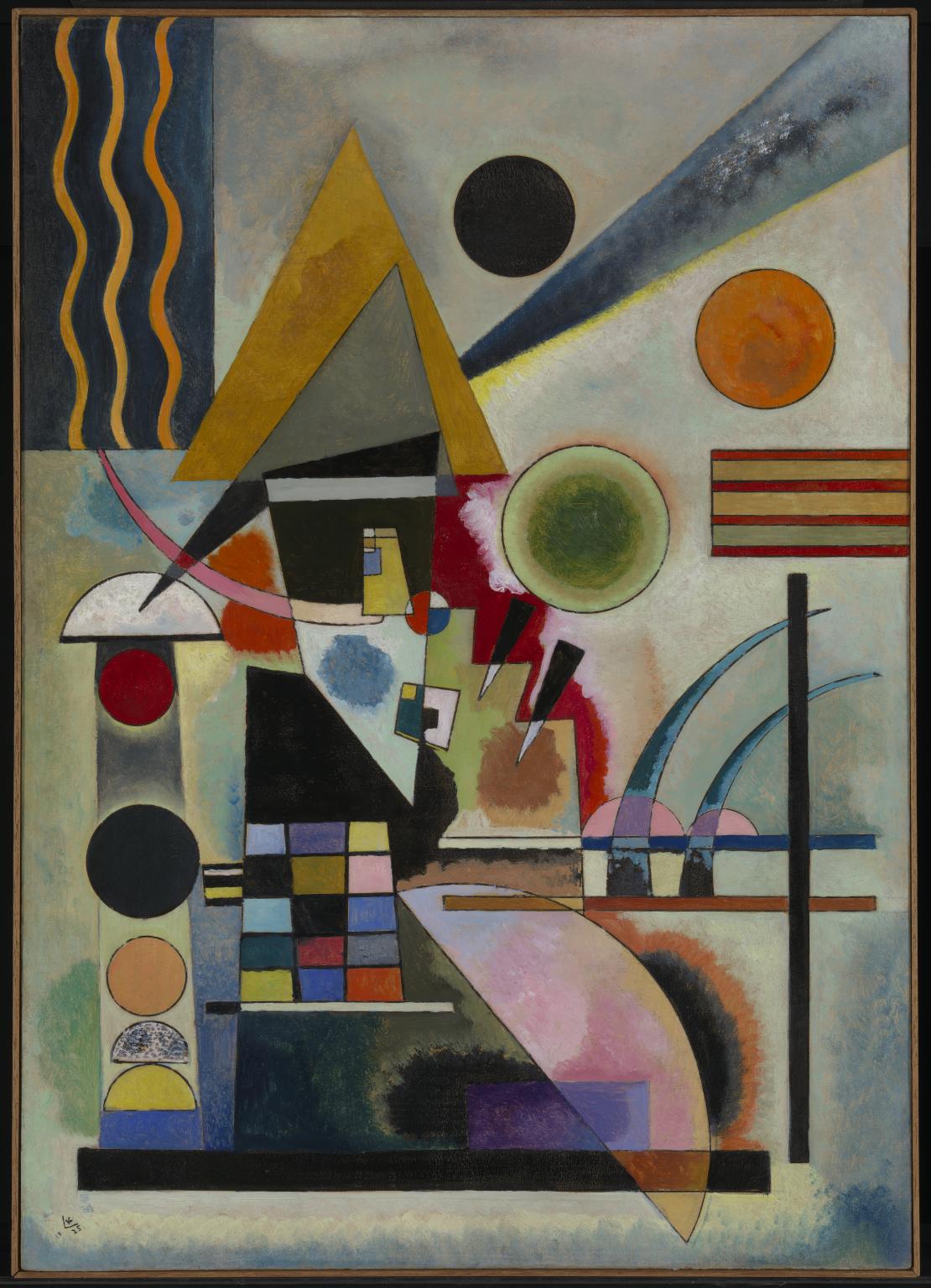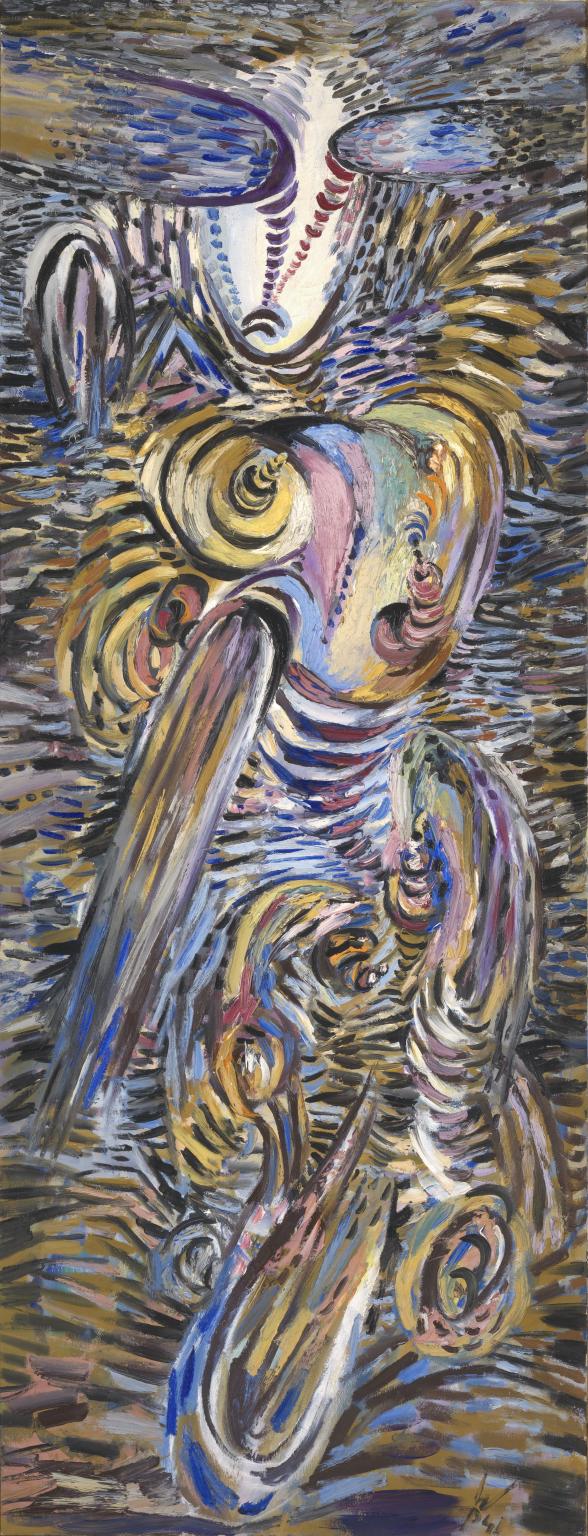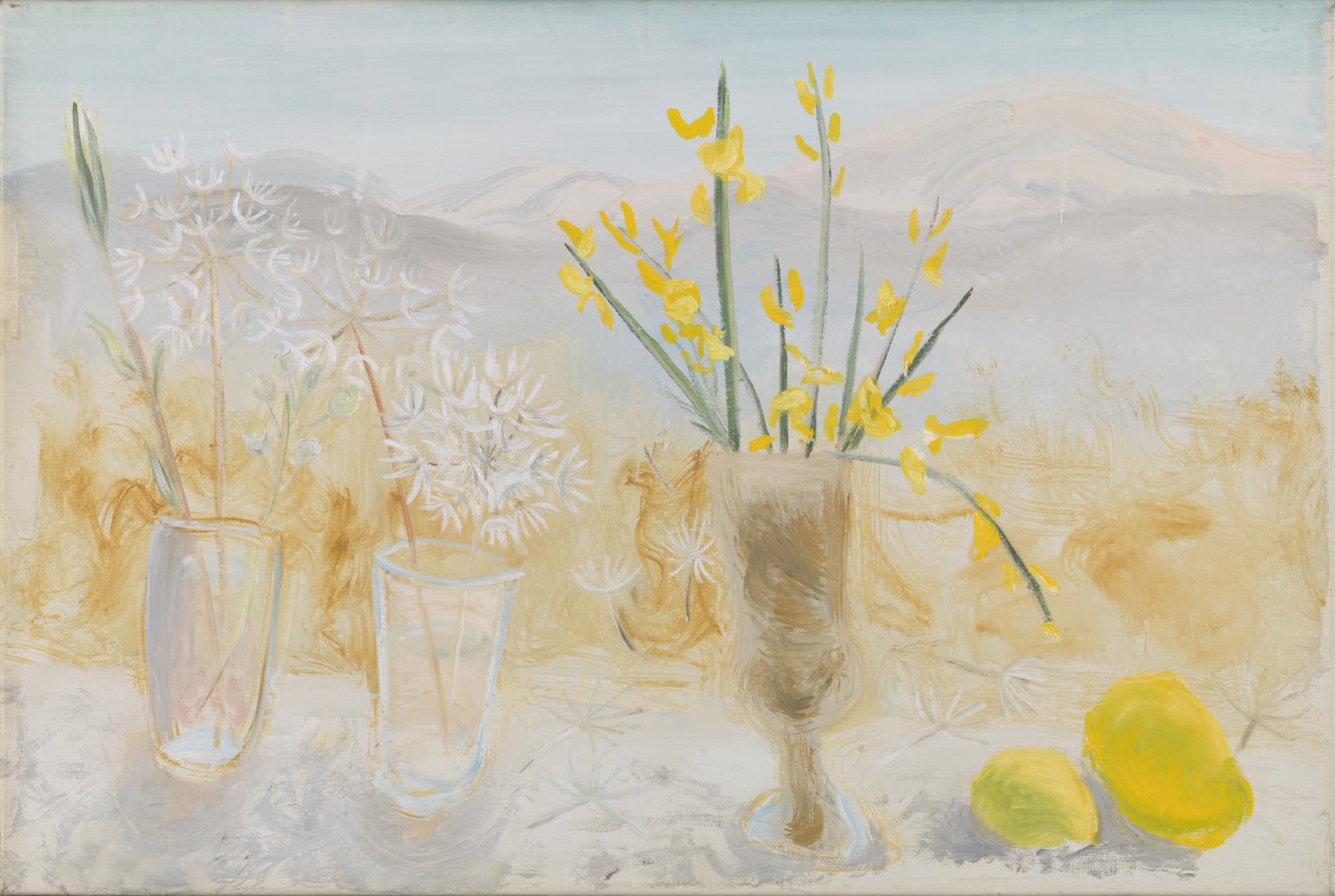6 rooms in Modern Conversations
These works explore surreal, irrational and mysterious aspects of modern life
Many people looked for alternative social or spiritual realities in response to widespread dislocation in the 19th and 20th centuries. The growth of urban centres, industrialisation and global conflicts caused the break-up of many rural communities and cultural traditions. At the same time, scientific breakthroughs such as the discovery of invisible forces like X-rays and radioactivity undermined established religious beliefs. The artists presented here explore mystical realms to reconcile spirituality with identity and the profound social changes of the era. Some use art as part of magic rituals that can transport us to alternative worlds. Others depict supernatural or transcendental experiences, using colour and symbols to depict images from dreams, mythologies or the unconscious. They consider art an uplifting and liberating force that can move us beyond our everyday existence.
Cornwall became a destination for visitors attracted to the region’s landscape, traditions and folklore, which many believe connect to ancient sacred powers. This understanding of the Cornwall as an inherently spiritual place continues to inspire artists, writers and philosophers.
Spotlight on Partou Zia (1958 – 2008)
'It is not form I want, but the essence of a memory; the sound of a feeling; the taste of a loss … I can paint the pictures of my dreams and talk to the stars'
Partou Zia’s light-filled paintings explore ideas of love, exile and death. Her bright palette represents the enhanced colours of her memories and imagination.
Zia arrived in London from Iran in 1970 as a political refugee. This imposed displacement was a potent influence in her work. Her paintings embody her search for personal and divine spirituality, combining images from her childhood in Tehran and her life in Cornwall with literary and religious motifs.
Tate St Ives
Level 3
Ongoing
Entry to both the display and the gallery is free for Tate Members, Locals' Pass holders and under 18s.
Become a memberArt in this room
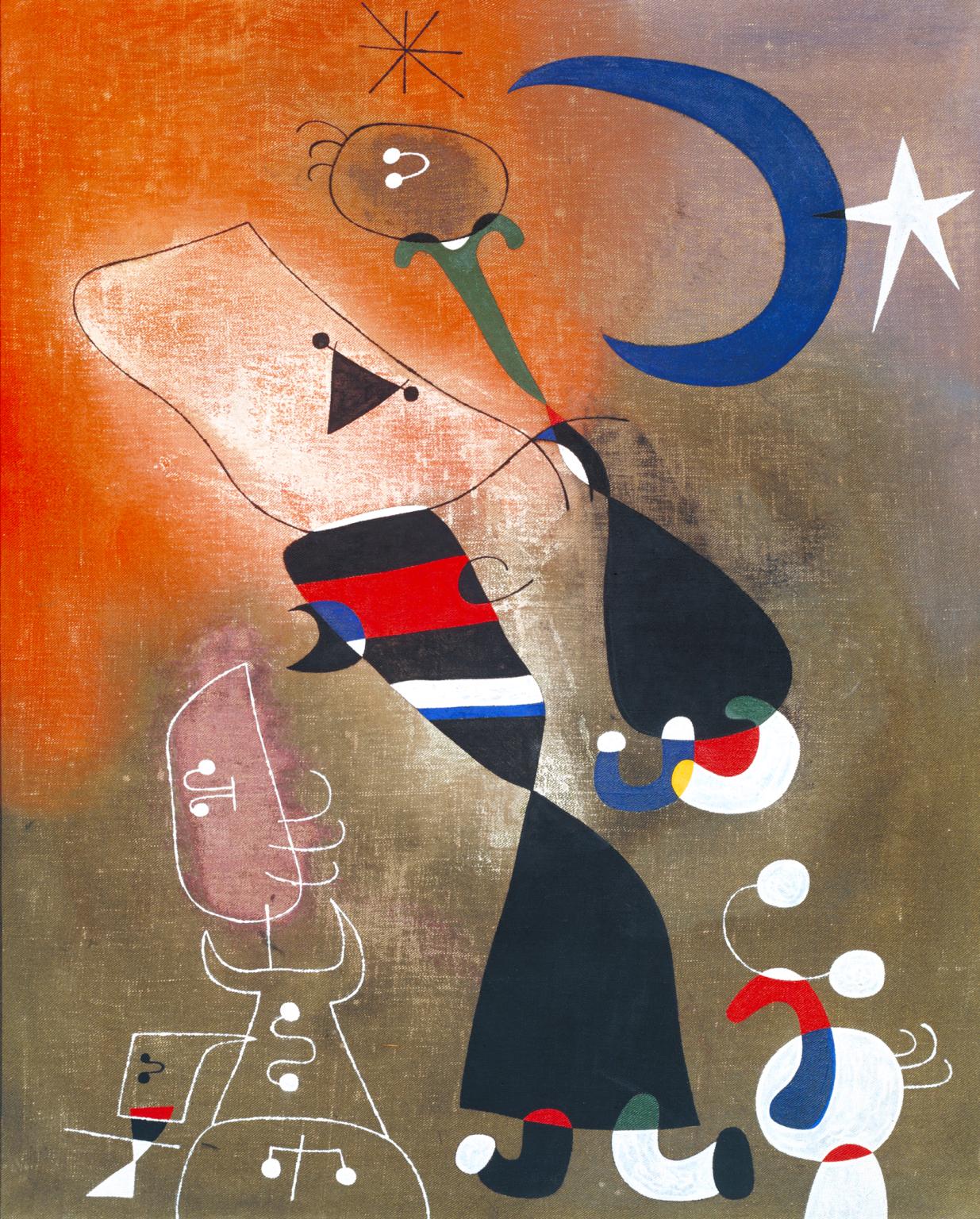
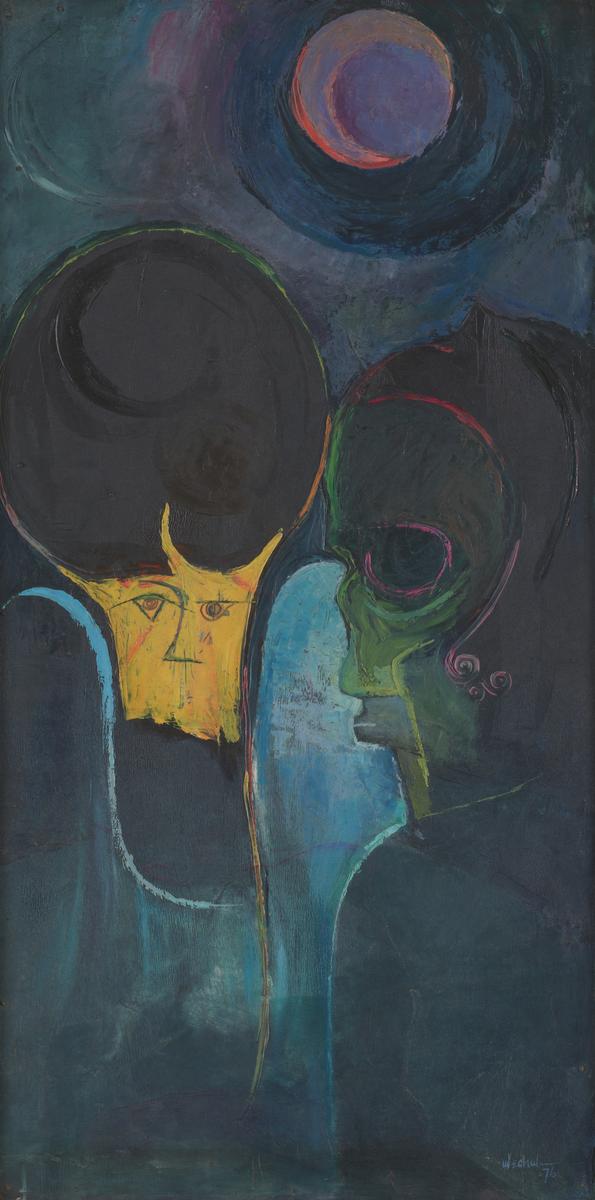
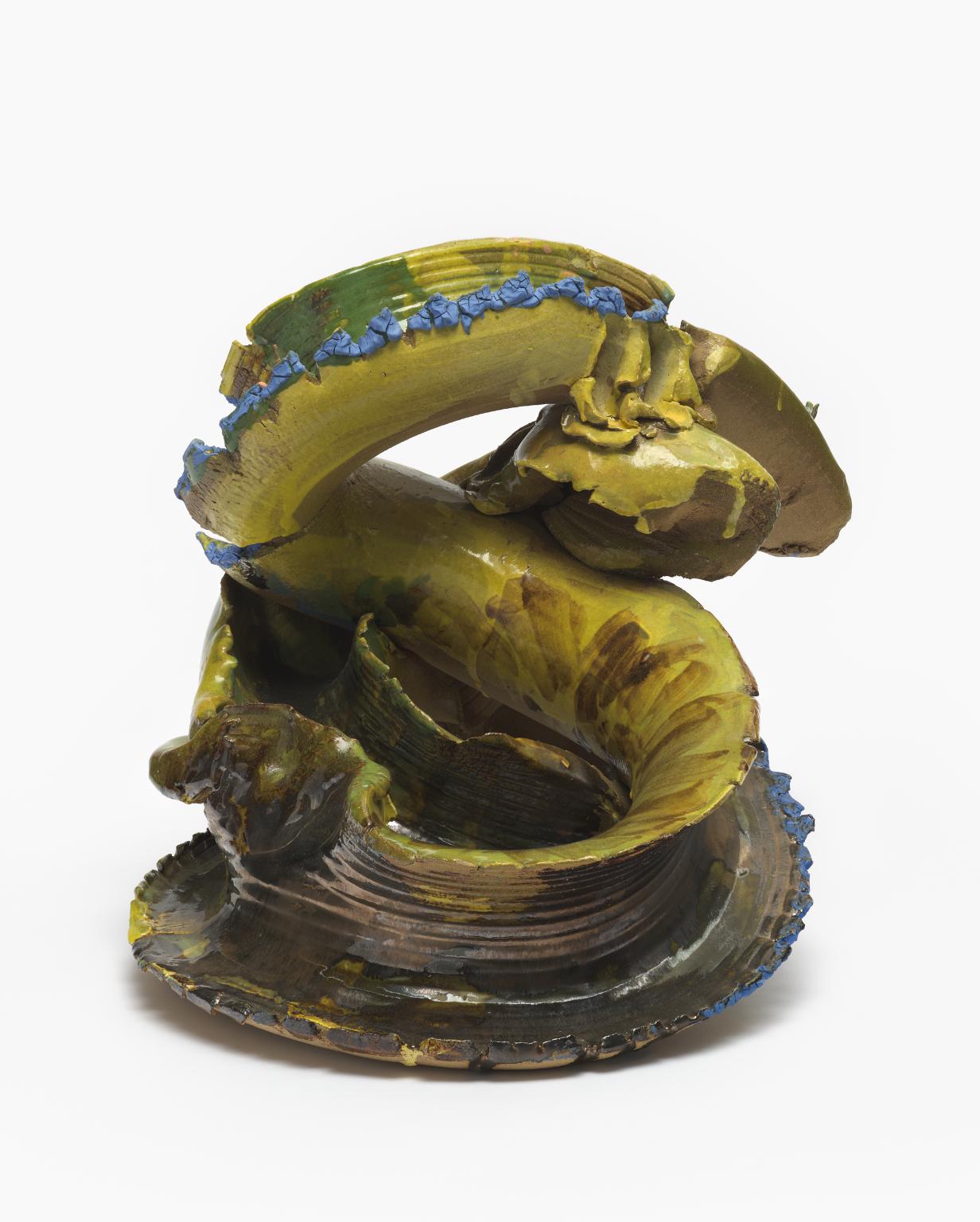
Sorry, no image available
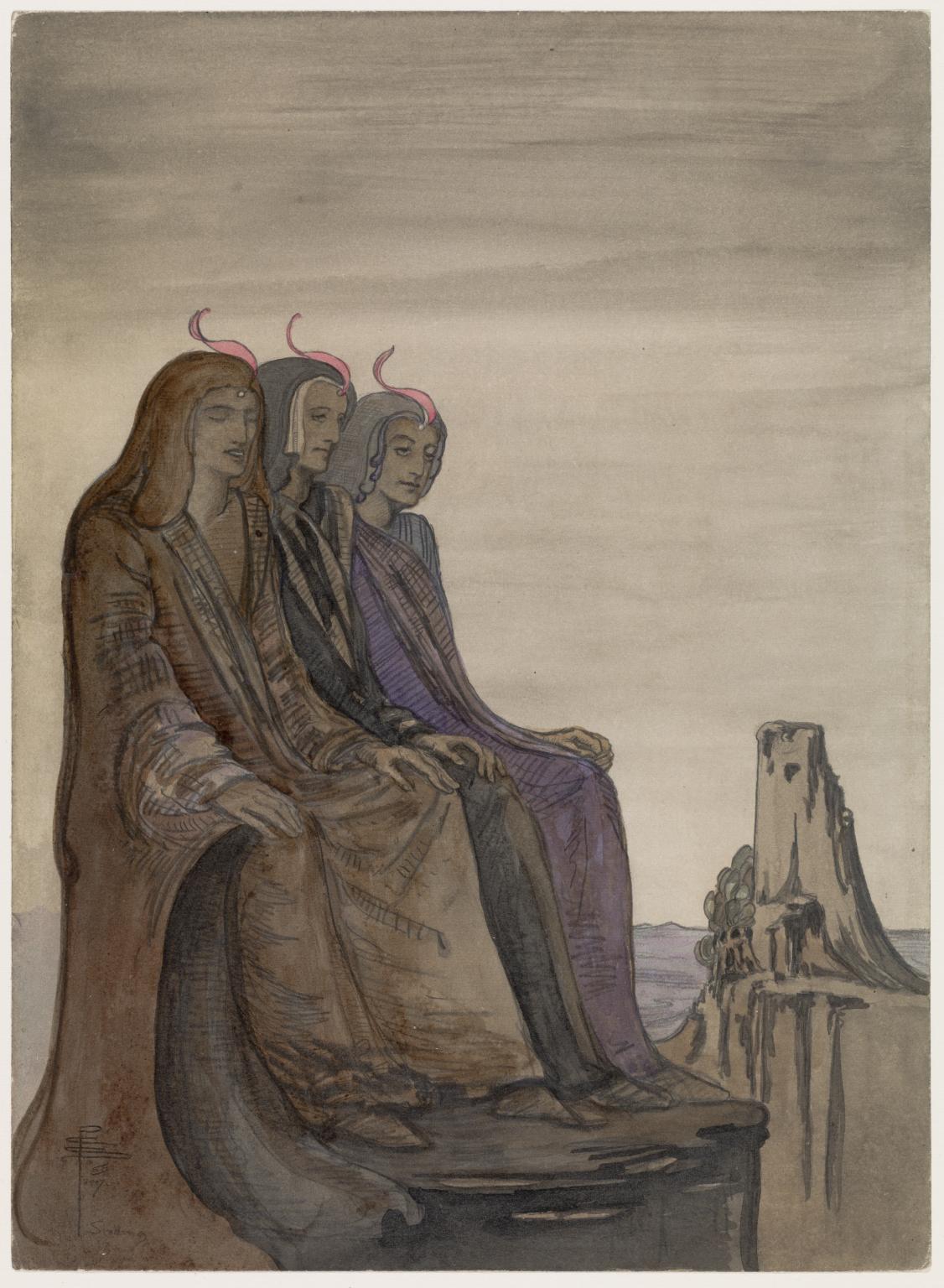
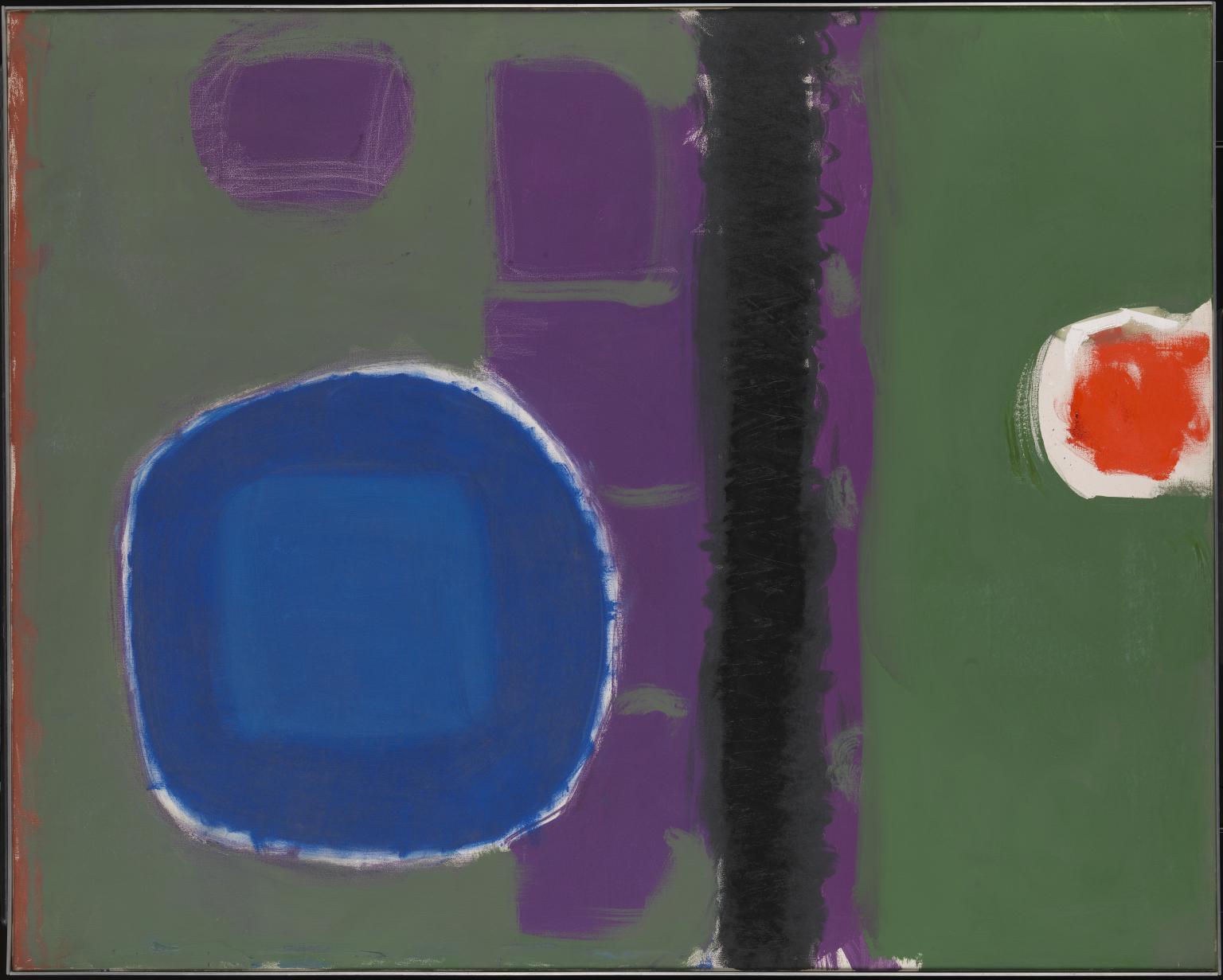
You've viewed 6/11 artworks
You've viewed 11/11 artworks

